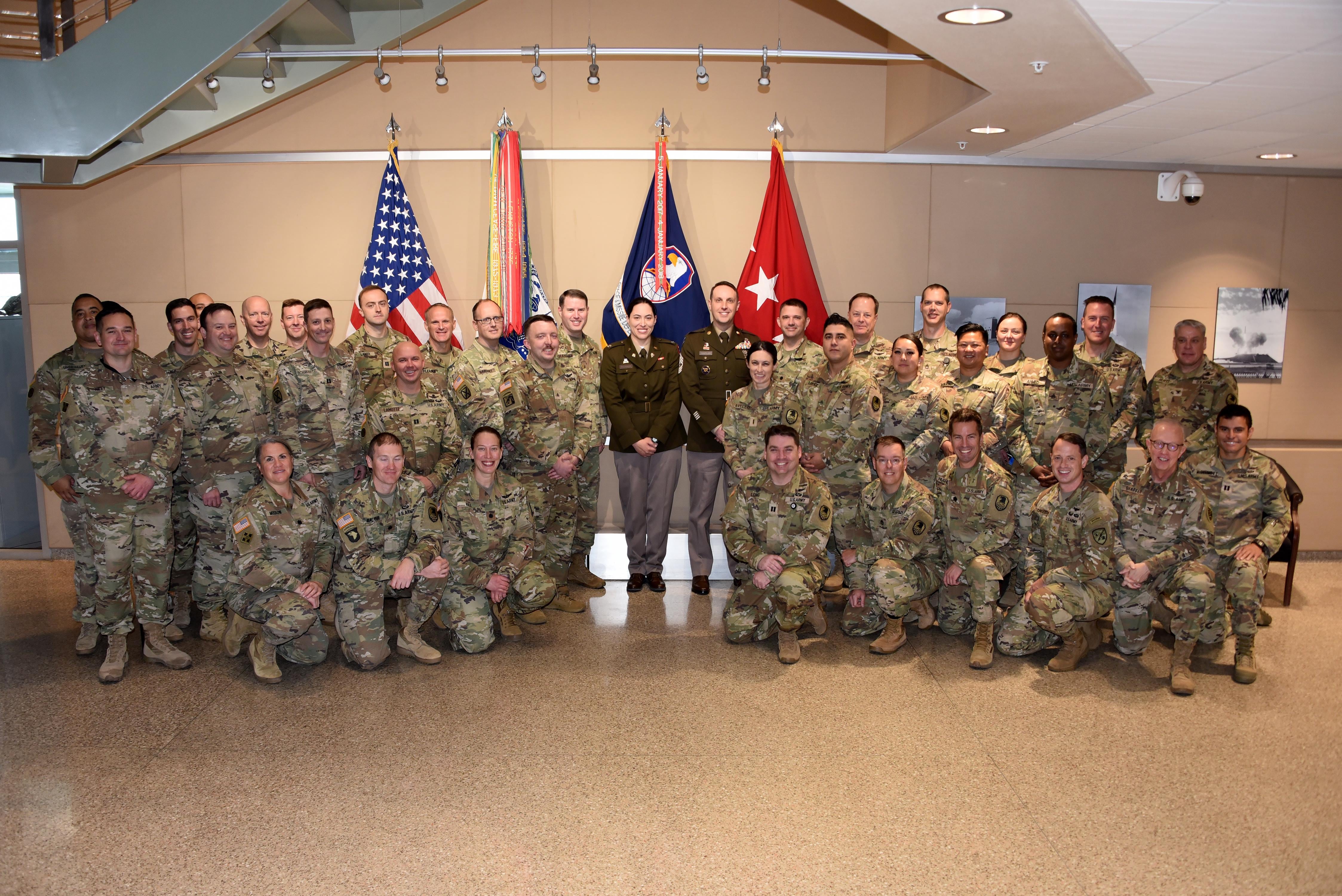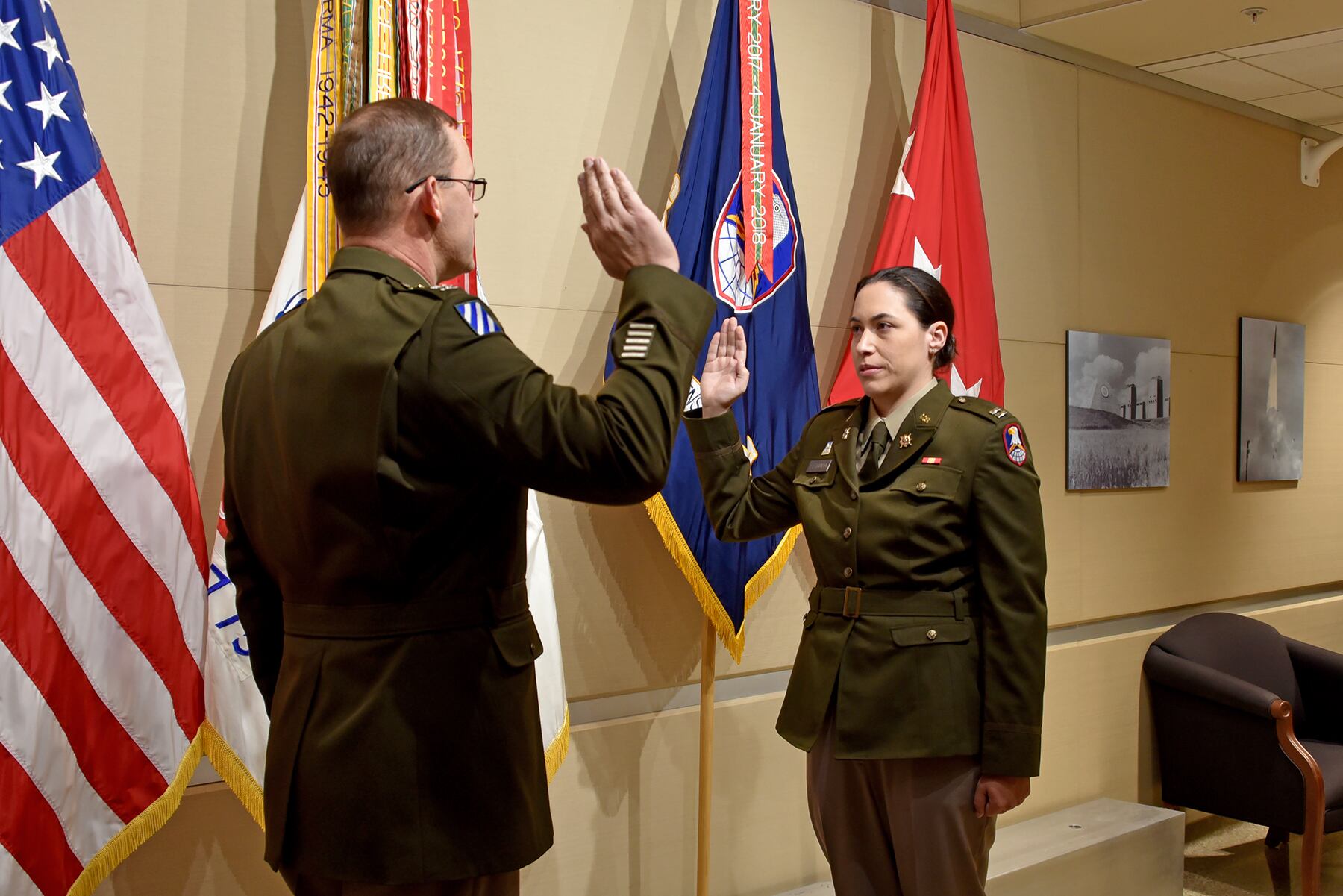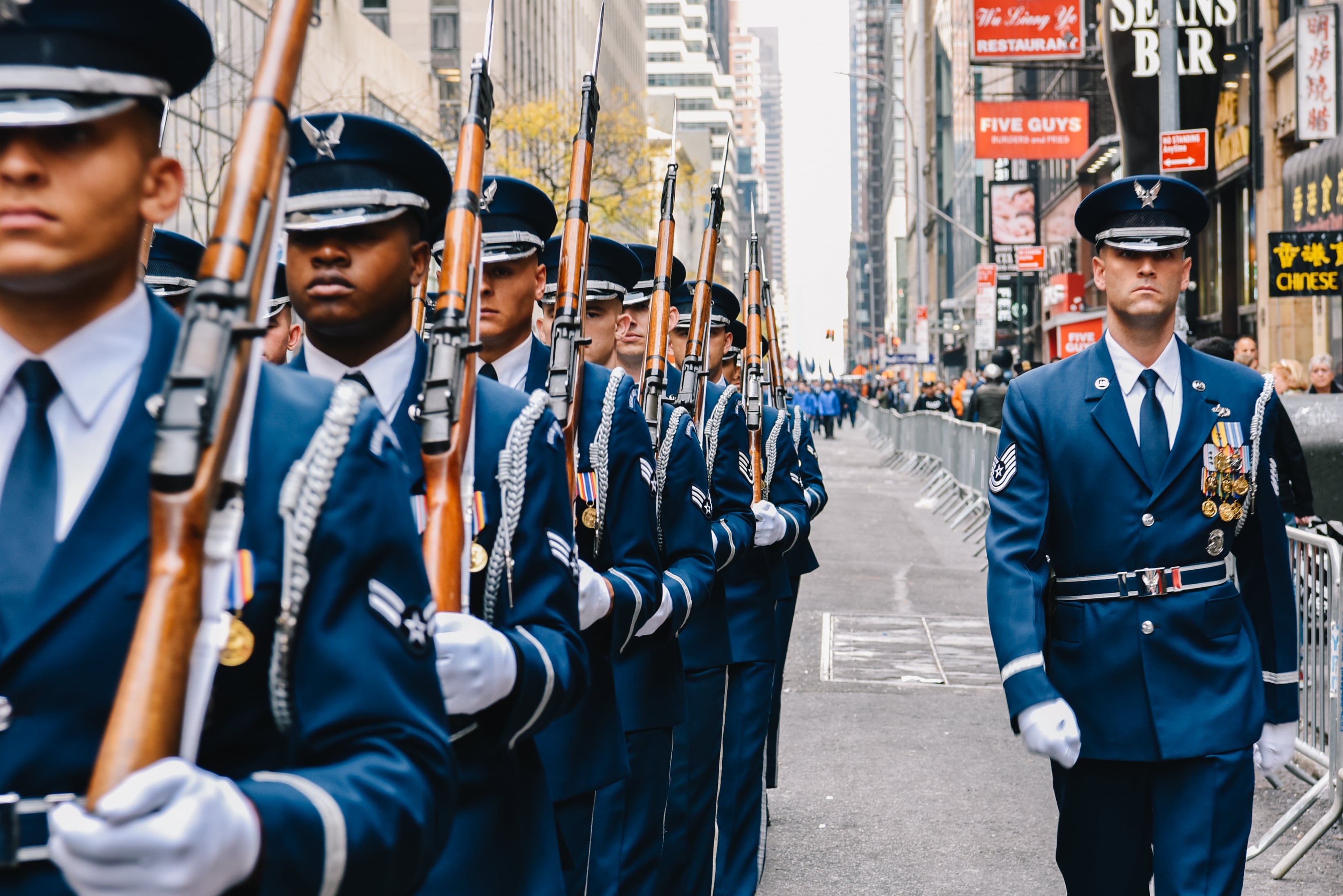In order to fight tomorrow’s wars, the Army is increasingly looking to its past, and a space officer’s recent appointment illustrates how far its efforts have come — and how much further they have to go against bureaucratic headwinds.
Capt. Jenniffer Estrada Lupianez, a newly minted Army Reserve space operations officer, works by day as a research scientist in the Los Alamos National Laboratory’s Intelligence and Space division. She also looked to the past — her family’s — when she decided to follow her uncle and late father’s footsteps into the Army.
But in doing so, Estrada Lupianez became the first space officer to emerge from the Army’s embrace of an older tradition: appointing specialized officers based on civilian expertise rather than forcing them to go through typical commissioning programs. The direct appointments were a crown jewel of recent Army talent management reform efforts — collectively dubbed the “war for talent” by now-retired Gen. James McConville, the service’s former chief of staff.
Eight decades ago, when the world was at war, the Army needed experts it couldn’t mass produce: medical professionals, lawyers, intelligence analysts, communications experts, electrical engineers, industrial planners, film actors and more.
Direct commissions filled the void, according to service historians, producing around 104,000 officers in 1942 from experienced civilians. Examples ranged from the Signal Corps building 404 battalions around direct commissioned officers with experience in fields like telephone repair, to the president of General Motors shunning the private sector to become a three-star general overseeing industrial logistics. Over time the process fell out of practice except for medical, religious and legal specialties.
In fiscal years 2019 and 2020, Congress expanded direct commission authorities and allowed the services to provide active or reserve appointments to hard-to-find experts. Priority areas include space, cyber, civil affairs and more — all spaces where the military will need America’s best and brightest should war with China or another superpower break out.
Speaking at a panel discussion last month, Army Reserve chief Lt. Gen. Jody Daniels, spoke candidly about her struggles cutting through red tape to appoint new officers via direct commission.
“Our process right now for direct commission is a disaster,” the three-star general said.
The numbers largely support Daniels’ argument.
Outside of specialty fields (like law, the chaplaincy and medical professions), the Army only netted 13 direct commission officers in fiscal year 2020 and 32 in fiscal 2021, according to annual historical summaries. But those totals are slowly improving as the service adjusts its process. Daniels said the Reserve in fiscal year 2022 saw “over 50″ direct commissions and that nearly 100 such officers entered in fiscal year 2023.
Those who have made it thus far, like Estrada Lupianez, have largely done so through administrative tenacity, patience and support from the units they’re aiming to join.
The Space and Missile Defense Center of Excellence’s commandant, Col. Donald Brooks, praised the “resourceful” new captain because “she found her way to Army space and started working with the Army Space Personnel Development Office to submit her packet,” which launched a year-long process where offices around the Army developed policies allowing her to enter the space functional area.

And it’s not just Estrada Lupianez who experienced a waiting period while the Army figured out its admin procedures.
“We had some [civil affairs] folks who — bless their hearts — endured two years before they were commissioned, but they stuck with the program,” Daniels said.
Personnel expert Kate Kuzminski, who heads the Military, Veterans and Society branch of the Center for a New American Security think tank, emphasized how important it will be to iron out the kinks in direct commissioning before the Army’s next large-scale war.
“[Direct commissions] harken back to how we historically had to tap into the nation’s talent,” she said in reference to World War II officer procurement efforts.
She argued the services have largely accounted for the big-picture challenges — cultural barriers, fiscal barriers, and policy barriers — that could impede modern direct commissions. Kuzminski also thinks the practice could pay dividends beyond just niche capabilities like cyber and space, to include areas like logistics and acquisitions.
“How great would it be to get a vice president from DHL or UPS to come in and help overhaul logistics, if that’s what we needed?” she asked, or “teams from the private sector who have the vast [logistics and acquisition] experience we need in order to enable the operations [in which] we will be engaged.”
Now it’s just a matter of removing administrative roadblocks and streamlining the process before it’s needed at scale — and getting the word out, she said.
Potential leaders like Estrada Lupianez are ready to answer the call.
“Going from ‘street to seat’ means I have quite a learning curve,” she said. “But I have several fantastic mentors in my unit and in the space operations community.”
One of Daniels’ deputies at Army Reserve Command, Brig. Gen. Kelly Dickerson, said the long waits for civil affairs experts have provided valuable lessons in improving the pathway.
“We have the talent — we can do these things, and that took a lot of pushing on the system,” Dickerson said. “It is [around] 46 steps to be directly commissioned into the United States Army … we’re going to fix that.”
Davis Winkie covers the Army for Military Times. He studied history at Vanderbilt and UNC-Chapel Hill, and served five years in the Army Guard. His investigations earned the Society of Professional Journalists' 2023 Sunshine Award and consecutive Military Reporters and Editors honors, among others. Davis was also a 2022 Livingston Awards finalist.





